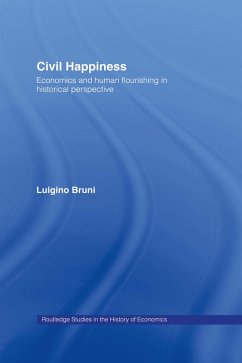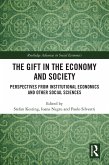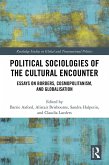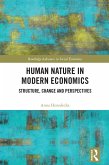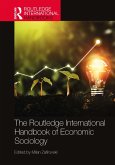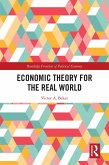Examining the crucial period in the late eighteenth century when economists such Smith and Genovesi tried to reconcile the classical tradition of Civil humanism emerging commercial society, this key book analyses the impact that the hedonist approach to economics had in removing the ethical conception of happiness. In addition, it focuses on the impact that J.S. Mill, Wicksteed and Pareto had in shifting methodological thinking away from an emphasis on civil happiness. Simply put, this book is essential reading for economists everywhere.
Dieser Download kann aus rechtlichen Gründen nur mit Rechnungsadresse in A, B, BG, CY, CZ, D, DK, EW, E, FIN, F, GR, HR, H, IRL, I, LT, L, LR, M, NL, PL, P, R, S, SLO, SK ausgeliefert werden.

